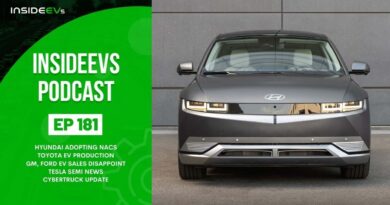‘I’m a politician – People are angry at Low Traffic Neighbourhoods’
Nick Ferrari clashes with guest over Low Traffic Neighbourhoods
Sadiq Khan’s Low Traffic Neighbourhood (LTNs) schemes are “dangerous” and impacting the lives of society including parents and carers, according to a former UKIP London Assembly member.
David Kurten, now a member of the Heritage Party, claims the traffic calming measures are one of the “main issues” Londoners want sorted out.
The 52-year-old ex-GLA member felt the scheme was damaging businesses and could even cause fatalities.
LTNs were introduced by Mr Khan in 2020 following £250million of Government funding.
The schemes use barriers to close off areas to pedestrians and cyclists, restricting access to vehicles.
READ MORE Florence Pugh’s father brands council ‘dictators’ over Low Traffic Neighbourhood
Speaking exclusively to Express.co.uk, Mr Kurten commented: “When I was campaigning in 2021 the LTNs in many areas were the main issues.
“That’s coming through the councils which is really hurting businesses, market traders, tradesmen because they just simply can’t get around like they could before.
“Parents who need to pick up their kids, carers who need to care for people. Ambulances can’t even get through these damn plant pots.
“It’s also dangerous. I don’t know how many people have lost their lives because ambulances can’t get through a planter in the road. It really is a serious issue and they seem to be carrying on with it anyway.”
DON’T MISS
Sunak orders review of low traffic neighbourhoods after ULEZ helps Tories win[LATEST]
Drivers hit with eye-watering LTN fines after flooding chaos[ANALYSIS]
Drivers slam 50-yard road which has collected £6million in fines[COMMENT]
We use your sign-up to provide content in ways you’ve consented to and to improve our understanding of you. This may include adverts from us and 3rd parties based on our understanding. You can unsubscribe at any time. More info
POLL: Should Low Traffic Neighbourhoods be scrapped?
Earlier this year, Mr Khan claimed there was evidence of fewer accidents and deaths in areas with LTNs in place. He also claimed the systems reduce street crime by 10 percent while locals do more exercise.
In July, he stressed people living in LTNs tend to drive less and now do over an hour more walking per week. However, opponents of the project claim the LTNs simply push congestion elsewhere. Drivers have also complained about having to spend longer in their cars to dodge diversions.
Mr Kurten highlighted this issue as he revealed most voters were against the concept. He added: “Most people who I know who are sensible and do business and do something productive in life don’t want them.
“But again you’ve got like some people who are into the climate alarmism and maybe they don’t drive a car and it’s a virtue signalling thing, ‘oh I’m doing my but for the planet by stopping people from driving down the road’.
“Well, they are not actually because there’s more congestion which means journeys take longer which means there is more emissions, which means there is more pollution.”
Transport for London stresses that research shows LTNs do not shift traffic from one place to another but leads to an overall reduction in the numbers on the road.
Helen Cansick, TfL’s Head of Healthy Streets Investment, told Express.co.uk: “Low Traffic Neighbourhoods were implemented quickly during the pandemic by Government, TfL and the London boroughs to support increased walking and cycling and allow for social distancing.
“Since then, TfL has worked closely with the boroughs and emergency services to adjust designs to respond to localised congestion and access issues.
“We will continue to support the boroughs in implementing LTNs. By committing to a programme that encourages more walking and cycling, we’re not only avoiding a growth in congestion and therefore emergency response times, but also making a real difference to public health and air quality.”
Source: Read Full Article





